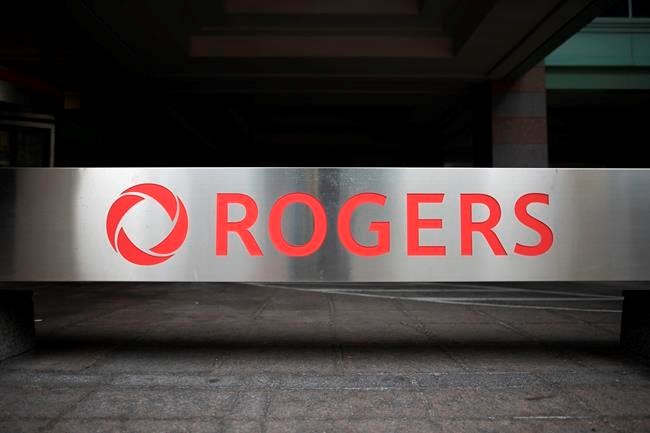Rogers Communications Inc. is offering wireless customers a credit following a massive nationwide outage.
The company said in an email on Tuesday that a credit equivalent to Monday's wireless service fee will be be applied automatically to May bills, with no action required by customers.
Rogers chief technology officer Jorge Fernandes said in a statement the root cause of the outage was a recent software update by the company's network partner Ericsson.
"Our team at Rogers worked tirelessly with Ericsson to restore wireless voice calls, SMS, and data services and bring all customers back online as quickly as possible," he said. "On behalf of all of us at Rogers, we sincerely apologize."
The company said it's undertaking an in-depth review to prevent similar issues from happening again.
The nearly daylong wireless interruption had deep economic implications, experts said.
The issue impacted business sales and services such as food delivery and curbside pickup, as well as the ability for some Rogers customers to book or check in for medical appointments.
Many users expressed frustration with the outage that left them without service, noting that they rely on the wireless service to work from home under ongoing COVID-19 restrictions.
"Everything we do now is connected digitally and many people no longer have a home phone," said David Soberman, a marketing professor in the Rotman School of Management at the University of Toronto.
"This creates a really big problem, especially during the pandemic when people are doing a lot of things on their phones including making bookings for vaccinations."
The extensive outage could stoke concerns about telecommunications consolidation and costs in Canada, according to experts.
Calgary-based Shaw Communications Inc., owner of Freedom Mobile and Canada's fourth-largest carrier, agreed to be purchased by Rogers for $26 billion pending regulatory approval.
MPs grilled executives of Shaw and Rogers during a federal committee hearing into the deal last month.
Executives argued that a larger, combined company would lead to an increase in spending on a new generation of networks, but MPs expressed concern that the deal could undo attempts to improve prices and services in Canada’s telecommunications market through greater competition.
While increasing consolidation and high wireless costs may be a concern, blocking the Rogers-Shaw deal is not the solution, said Will Mitchell, the Anthony S. Fell Chair in New Technologies and Commercialization at the Rotman School of Management.
"On one hand, the fewer companies we have, the more people any one outage will affect," he said. "On the other hand, the more companies we have, the smaller on average any one of them is going to be and the less money and technical resources they will have to invest in state-of-the-art technology."
In other words, if Canada had more telecom firms, the ability for each company to invest in sophisticated technology would be lower, Mitchell said.
Still, the CRTC could require large telecommunications companies to build in redundancies, such as robust backup systems or agreements with competitors to offer wireless service in the case of an outage, he said.
"I would demand that redundancy because it's just way too important," Mitchell added.
Rogers, one of Canada's big three wireless carriers along with Bell and Telus, owns a national wireless network that does business under the Rogers, Fido and Chatr brands.
This report by The Canadian Press was first published April 20, 2021.
Companies in this story: (TSX:RCI.B)
Brett Bundale, The Canadian Press



